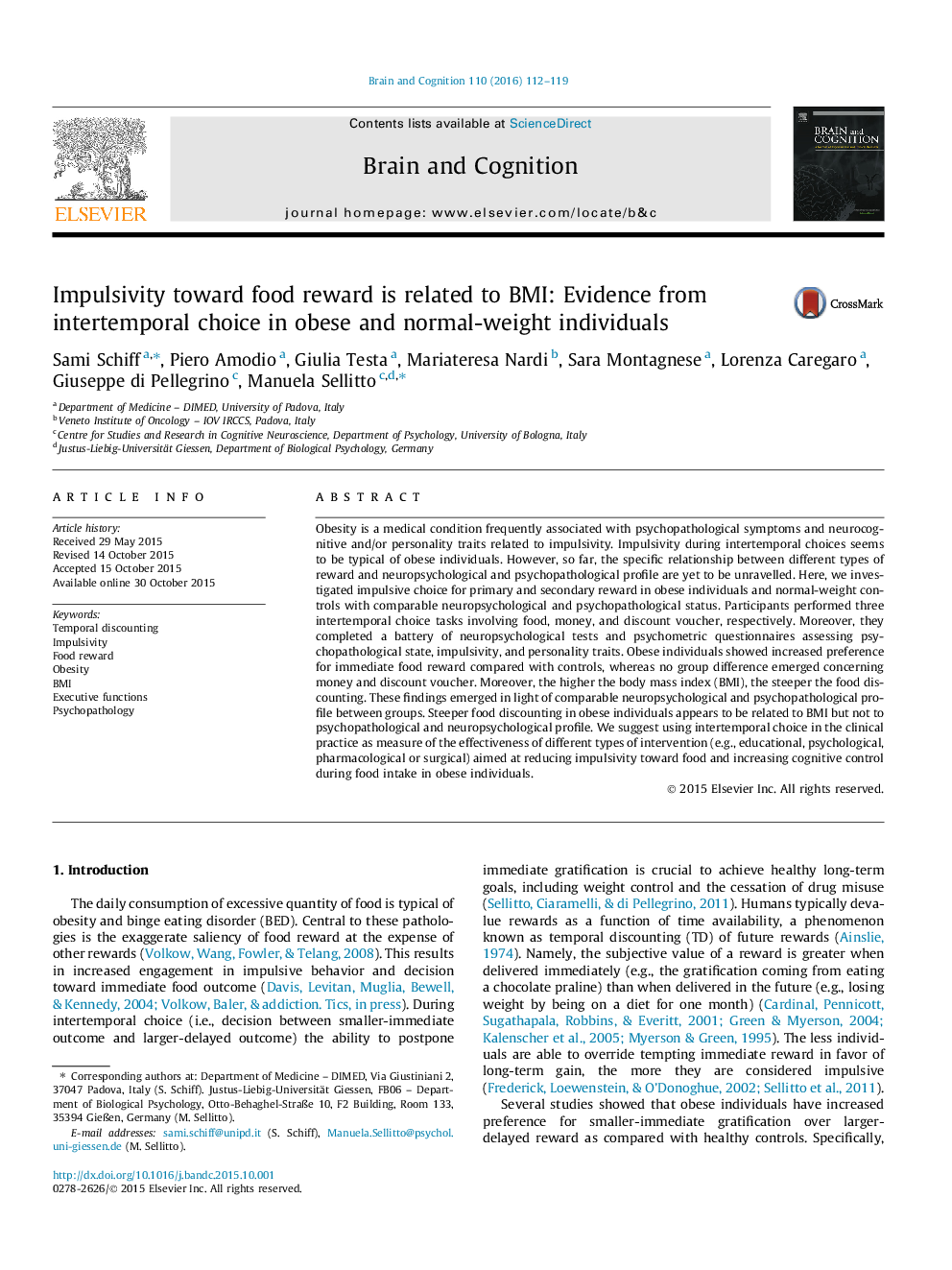| کد مقاله | کد نشریه | سال انتشار | مقاله انگلیسی | نسخه تمام متن |
|---|---|---|---|---|
| 5041212 | 1473961 | 2016 | 8 صفحه PDF | دانلود رایگان |

- Obese individuals discount food reward more steeply than secondary rewards.
- Impulsivity toward food reward is linearly related to BMI.
- Personality, psychopathology, and executive functioning did not affect these findings.
Obesity is a medical condition frequently associated with psychopathological symptoms and neurocognitive and/or personality traits related to impulsivity. Impulsivity during intertemporal choices seems to be typical of obese individuals. However, so far, the specific relationship between different types of reward and neuropsychological and psychopathological profile are yet to be unravelled. Here, we investigated impulsive choice for primary and secondary reward in obese individuals and normal-weight controls with comparable neuropsychological and psychopathological status. Participants performed three intertemporal choice tasks involving food, money, and discount voucher, respectively. Moreover, they completed a battery of neuropsychological tests and psychometric questionnaires assessing psychopathological state, impulsivity, and personality traits. Obese individuals showed increased preference for immediate food reward compared with controls, whereas no group difference emerged concerning money and discount voucher. Moreover, the higher the body mass index (BMI), the steeper the food discounting. These findings emerged in light of comparable neuropsychological and psychopathological profile between groups. Steeper food discounting in obese individuals appears to be related to BMI but not to psychopathological and neuropsychological profile. We suggest using intertemporal choice in the clinical practice as measure of the effectiveness of different types of intervention (e.g., educational, psychological, pharmacological or surgical) aimed at reducing impulsivity toward food and increasing cognitive control during food intake in obese individuals.
Journal: Brain and Cognition - Volume 110, December 2016, Pages 112-119